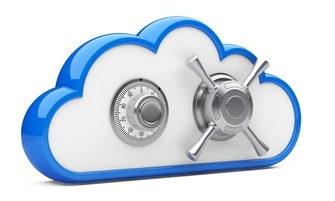Probably not.
The 2016 Global Cloud Data Security Study unfolds the bitter truth in cloud storage security of organisations in UK, Germany, US, Russia and other countries.. The study conducted by Ponemon Institute reported that behind the stable growth of cloud usage, companies lack necessary governance practices and security measures.
With over 3,476 IT security practitioners surveyed, only 43% said their establishments are implementing accountability measures to safeguard confidential and sensitive data in the cloud.
One of the weak points of companies is the lack of personnel charged to evaluate the cloud resources being deployed and increasingly, cloud resources deployed without security, due to loss of control over end users.
This is critical in the environment where cloud usage continues to grow in importance. About three quarters (73%) of IT security practitioners consider cloud computing applications are important to their organisation’s operation. On the contrary over half (54%) of the respondents do not agree that their organisations are committed to comply with privacy and data protection regulations in the cloud.
Ultimately, 56% of organisations are reportedly not cautious about sharing sensitive information with third-parties like business partners, contractors and cloud-providers.
The types of data at risk in the cloud are usually highly sensitive and confidential such as customer data, email, employee records, consumer data and payment information.
The paramount reason why cloud security is a challenge for organisations is that it is difficult to apply “conventional information security in the cloud computing environment.”
Another alarming revelation is that only a fifth of security practitioners are permitted at the table for decision making about data security governance. What’s more, according to the study, “Most organisations still do not have security policies for the cloud.”
On this note, Gemalto recommends adopting “encryption, tokenization or other cryptographic solutions to secure sensitive data transferred and stored in the cloud ” and said that organisations should improve compliance with data security and privacy regulations.
How docSafe can help you
For individuals working on a client-based industry like lawyers, accountants, writers, creatives and small business, you can store and access data filed in the cloud safely and efficiently. With docSAFE you can work collaboratively and exchange files with clients in the most secure way possible. You can have convenience, security and efficiency for just a few pounds each month.
Have you ever had trouble sending large confidential files through the internet safely? Or have you had the problem of how you can collaborate on a project with partners miles away?
docSAFE can help you with its secure and reliable file sharing online.
To learn more visit our site.

 The new GDPR comes into effect in 2 years from now. That might seem a long way off but it is barely enough time to understand the changes and put everything into place for total compliancy. What are we talking about? The new GDPR replaces the Data Protection Act as we have come to know it. It has serious implications for any business holding customer information – this includes businesses that sell products and services and also those who monitor customer behaviour (in any way – research, social media etc) of EU citizens.
The new GDPR comes into effect in 2 years from now. That might seem a long way off but it is barely enough time to understand the changes and put everything into place for total compliancy. What are we talking about? The new GDPR replaces the Data Protection Act as we have come to know it. It has serious implications for any business holding customer information – this includes businesses that sell products and services and also those who monitor customer behaviour (in any way – research, social media etc) of EU citizens. “On May 17, 2016, we became aware that data stolen from LinkedIn in 2012 was being made available online. This was not a new security breach or hack. We took immediate steps to invalidate the passwords of all LinkedIn accounts that we believed might be at risk. These were accounts created prior to the 2012 breach that had not reset their passwords since that breach.”
“On May 17, 2016, we became aware that data stolen from LinkedIn in 2012 was being made available online. This was not a new security breach or hack. We took immediate steps to invalidate the passwords of all LinkedIn accounts that we believed might be at risk. These were accounts created prior to the 2012 breach that had not reset their passwords since that breach.”